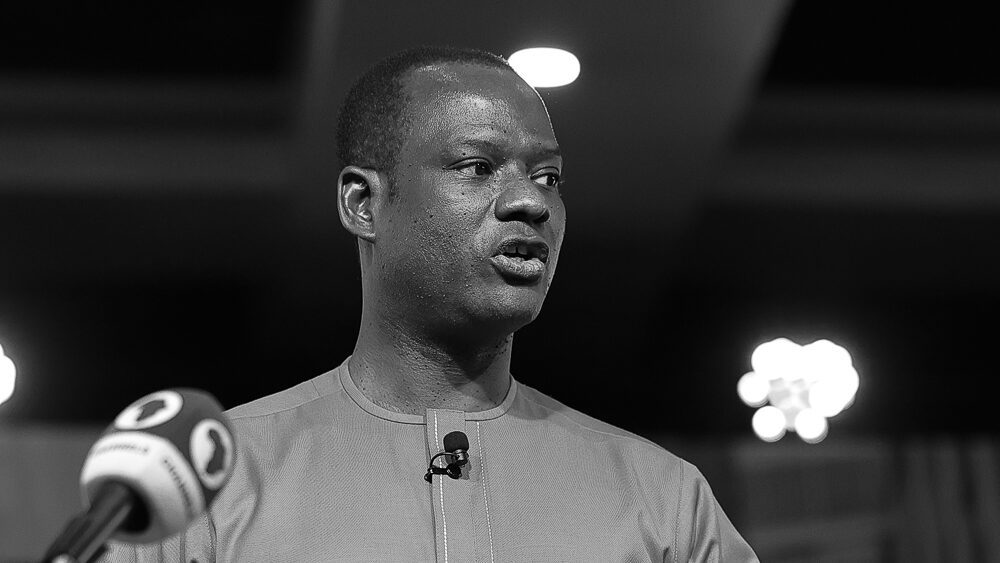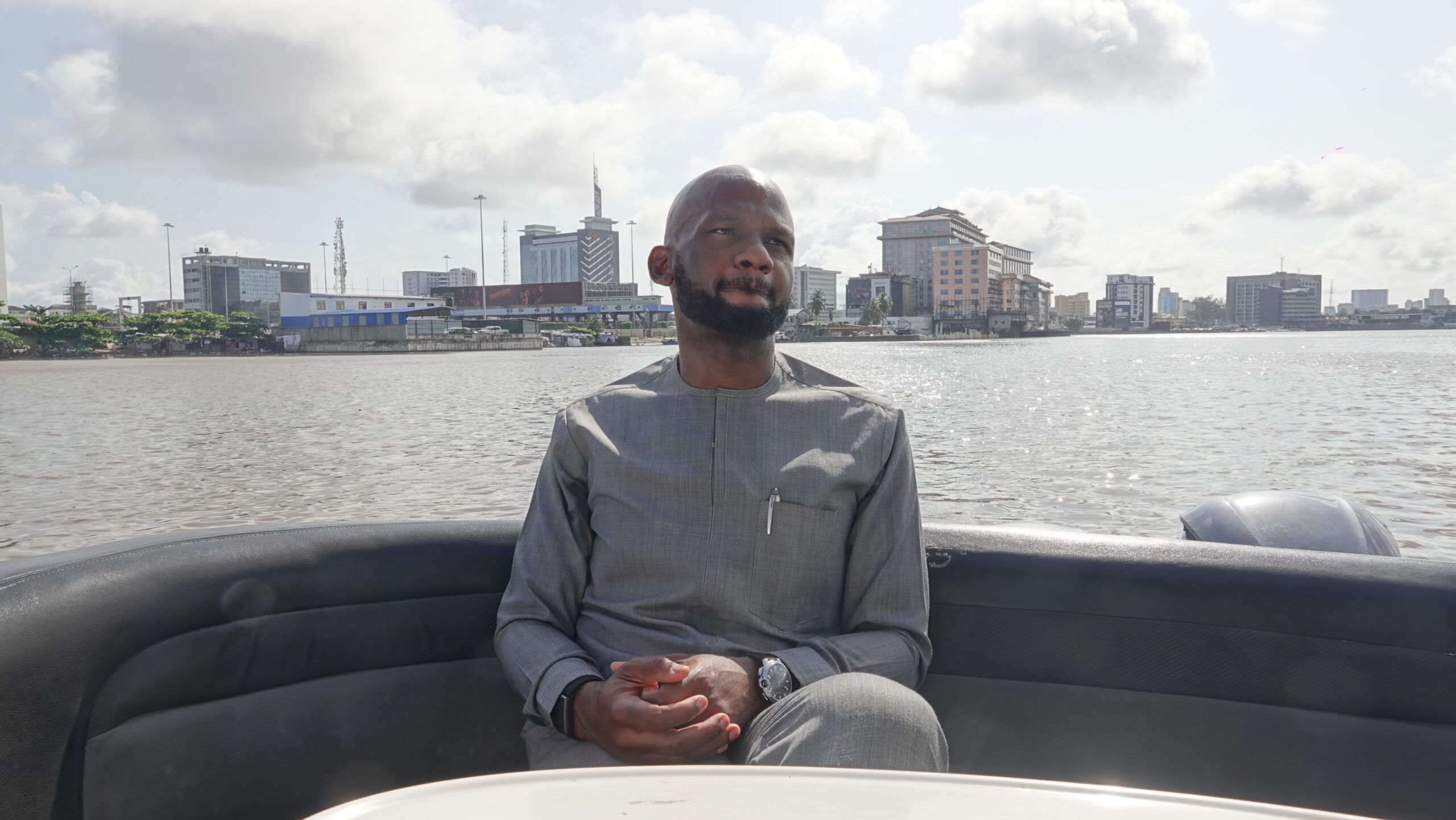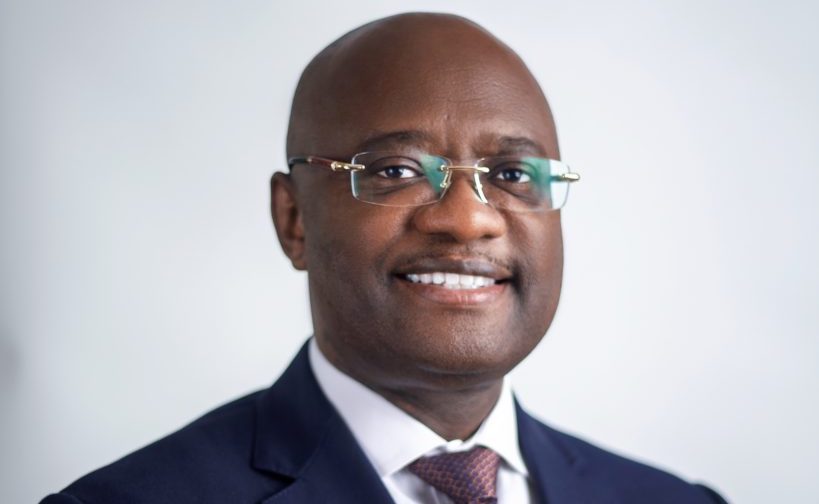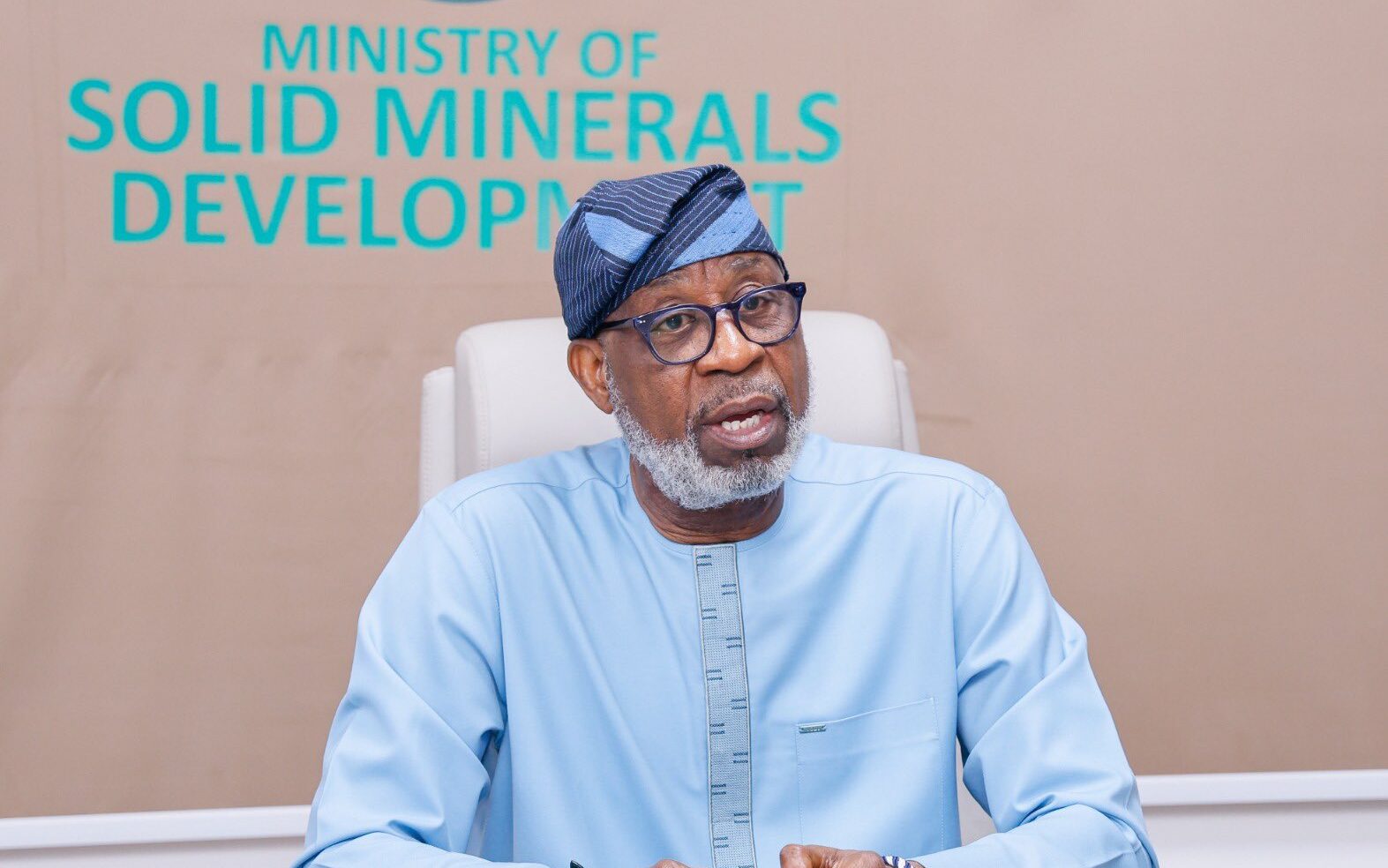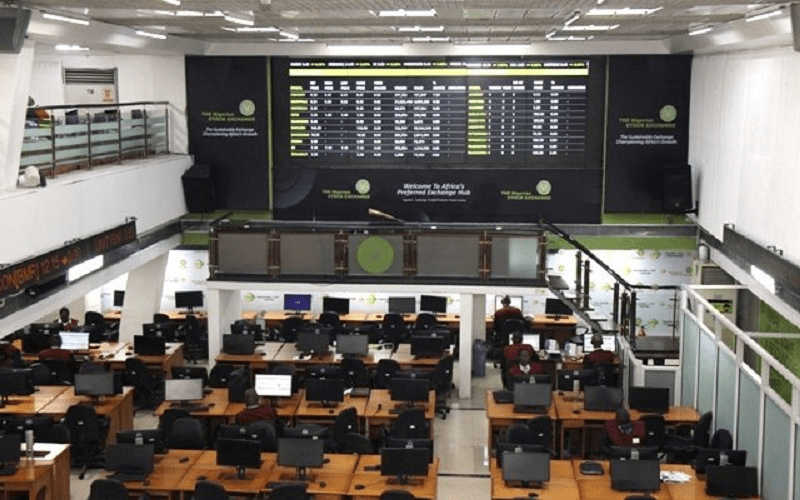Ebonyi State, located within the South East zone, is one of the 36 federating units of the Federal Republic of Nigeria. Onikepo Braithwaite and Jude Igbanoi tracked down the Ebonyi State Attorney-General and Commissioner for Justice, Dr Ben Uruchi Odoh, who is also the Chairman of Body of State Attorneys-General (BOSAG). He spoke on the steps Ebonyi State has taken to reform and modernise justice administration under his watch with the vision and support of Governor Nwifuru, making their State a trend-setter in this respect; how Ebonyi State was the only one in the South East that didn’t observe the unlawful Monday sit-at-home order imposed by IPOB, and his role as Chairman of BOSAG
Hon. Attorney-General, did you set a clear agenda when you assumed office, one that aligns with the current realities and needs of the justice sector? If you did, kindly, share the highlights of your agenda. The argument is that without an activity plan, the AG may get distracted with the ongoings in Government, and maybe start to see themselves as the Lawyer of only the Governor, as opposed to also being the people’s Lawyer. How well have you balanced this?
When I assumed office as Attorney-General and Commissioner for Justice of Ebonyi State on June 20, 2023, I came prepared. I had no intention of continuing with old routines. I was fully aware of the gaps in our justice system – delays in case handling, poor access to legal services, and the general mistrust many citizens had for the system. So, I knew that without a clear and focused agenda, it would be easy to drift or be pulled in too many directions.
But, I didn’t start from scratch. I looked closely at the Governor’s vision – the People’s Charter of Needs – which places the welfare of the ordinary citizen at the heart of Government policy. It was clear to me that, the justice sector also needed to reflect that same commitment. So, we developed a plan of our own, and we called it the Charter of Justice – deliberately coined to mirror the Governor’s grand vision.
The Charter of Justice is not a slogan. It is the backbone of our work, at the Ministry of Justice. It is built on five practical goals, each one tied to real needs on the ground.
The first is, digitisation. We needed to fix the slow pace of justice and the mess created by outdated, paper-based systems. So, we launched the Ebonyi State Case Management System, which allows better tracking of cases, easier filing, and less delay. It helps people follow up on their matters without having to physically visit an office, or rely on vague updates.
The second is, access to justice. Many people, especially those in rural areas, don’t have Lawyers or even understand how the legal system works. Some are detained for months, or even years, without trial. We responded by setting up the Office of the Public Defender, a Citizens’ Mediation Centre, a Sexual and Gender-Based Violence Response Unit, and a new legal outstation in Afikpo. These are practical steps to bring justice closer to the people, especially those who cannot afford it.
The third is, building our team. We trained over 100 law officers in relevant areas like mediation, arbitration, and criminal law. We covered their Bar Practicing Fees – a first in the State. We sponsored their attendance at professional events, and built standard chambers for six prospective Senior Advocates from Ebonyi. This is because, a justice system is only as strong as the people who run it.
Fourth is, legal drafting and court work. We have drafted 34 Executive Bills, all signed into law. We’ve handled over 300 legal agreements, and concluded 166 criminal and 445 civil cases. These figures represent work done and justice served – not just paperwork.
The fifth is, national engagement. Since becoming Chairman of the Body of State Attorneys-General (BOSAG) in April 2024, I’ve taken steps to ensure that Ebonyi contributes meaningfully to legal reform nationwide. We’re working with LexisNexis on revising the laws of Nigeria, and have hosted key summits like the South East Policy Summit on Criminal Justice Reform. Ebonyi is no longer silent in national conversations; we are part of shaping them.
Now, to the second part of your question – how do I avoid becoming just the Governor’s Lawyer?
My answer is straightforward. I have never seen a conflict between supporting the government and serving the people – at least not under this administration. His Excellency, Rt. Hon. Francis Ogbonna Nwifuru, has given me both the independence and support needed to work professionally. He respects the rule of law. He allows room for honest legal advice, even when it involves hard truths.
So, I’ve drawn a clear line. I advise the Governor, but, always within the law. I represent the Government, but I do not cover up wrongdoing. I lead prosecutions, but, I insist they be fair and timely. Every legal action we take is measured against what is right, not what is politically convenient.
I do not serve personal interests. I serve the Constitution. I serve the people of Ebonyi. And, every decision I make must answer a simple question: “Is this just?”
That question has guided me from the beginning, and it still does today.
There are some key roles that a State Ministry of Justice is expected to play – upholding the rule of law, ensuring public safety, protecting the vulnerable, prosecuting crime, supporting the ease of doing business, and leading justice sector reforms. How well has your Ministry done in this regard?
This question speaks directly, to the reason I accepted the call to serve. Justice is not an abstract ideal, it determines whether citizens are heard or ignored, protected or forgotten. The Ministry of Justice exists to ensure that justice isn’t something people admire from afar, but, something they can tangibly experience. That has been our mission from day one.
We began by strengthening the rule of law. Every executive action is guided by sound legal advice, not politics. Even in difficult or politically sensitive matters, we’ve insisted on what is lawful; not just what is convenient. No one is above the law, and no one is beneath its protection.
In terms of public safety, we have prosecuted over 160 criminal cases and supported early dispute resolution through the Citizens’ Mediation Centre and the Ebonyi Multi-Door Courthouse, helping prevent minor conflicts from escalating.
We also launched the Office of the Public Defender to offer free legal representation to indigent persons, especially pretrial detainees. Hundreds of lives have already been impacted. Likewise, the Sexual Assault and Gender-Based Violence Response Department, now provides survivors with legal and emotional support.
To improve system efficiency, we deployed the Ebonyi Case Management System, and are now installing speech-to-text transcription tools in courts, in partnership with the PPDC (USA). This reduces documentation delays, and improves access to justice.
On the ease of doing business, our Ministry has reviewed over 300 legal agreements tied to State investments. We ensure contracts are fair, bankable, and enforceable. Notably, Ebonyi now has the Ebonyi State Investment Promotion, Investor’s Protection, Concession and Regulation Commission Law – a bold legal framework that removes uncertainty for investors and guarantees protections under law.
Because of these reforms, Ebonyi State is now the safest place to invest in the South East region. Legal confidence, investor protection, and peace of mind are not just promises; they are being backed by credible legal instruments and strong institutional will.
On justice sector leadership, we’ve revitalised key legal publications, hosted summits, and contributed nationally – especially through our leadership in BOSAG, and our partnership with LexisNexis South Africa on law codification.
Yes, there is more to do. But, today, justice in Ebonyi is visible, accessible, and strategic, and the Ministry of Justice is leading from the front.
You were recently elected as Chairman, Body of State Attorneys-General. What are the functions of this body, and how have you piloted the affairs of the body since you assumed office?
Yes, I was elected Chairman of the Body of State Attorneys-General (BOSAG) in April 2024. It is both a privilege and a serious responsibility, especially at a time when Nigeria’s justice sector is under pressure to deliver real change.
BOSAG serves as the official forum for State Attorneys-General, to discuss legal and policy matters affecting the States. We look at how Federal laws impact sub-national governments, coordinate responses to constitutional issues, and engage with national institutions like the National Assembly, the Nigeria Governors’ Forum, and the Federal Ministry of Justice.
Since assuming office, I’ve focused on making BOSAG more coordinated and results-driven. One key initiative is our partnership with LexisNexis South Africa, to support States in updating and codifying their laws. Many States still rely on outdated legal frameworks. With this partnership, we are helping modernise State laws to reflect current realities.
Though I hosted the South East Special Policy Summit on Criminal Justice Reform in November 2023 before becoming BOSAG Chairman, the event set the tone for regional collaboration. It tackled issues like prison congestion, delayed trials, and non-custodial sentencing. It also brought together justice actors to produce practical resolutions – a model we are now promoting at BOSAG.
We’re also building a shared legal reform hub, where States can access model legislation, policy drafts, and tested ideas, reducing duplication and saving time.
As Chairman, my role isn’t to lead others, but to coordinate, guide discussions, and help build consensus. BOSAG is a peer-driven platform, and I’m proud to work with colleagues who are deeply committed to building a more responsive and unified justice system across Nigeria.
The South-East has been a hotbed of violence and crime, based on the activities of IPOB. The sit-at-home order they imposed on citizens no doubt, has been received with circumspection. How has this impacted on justice administration in Ebonyi State? Has there been an upsurge in violent crimes in the State? What have you done about the unlawful imposition of Monday sit-at-home by IPOB?
The IPOB-imposed Monday sit-at-home disrupted many sectors across the South-East, halting business, affecting schooling, and delaying justice. But, I must emphasise that Ebonyi State stands out as the only State in the South that never observed the sit-at-home order. This is not by chance. It is the result of the resolute leadership of His Excellency, Rt. Hon. Francis Ogbonna Nwifuru, who made it clear from the outset that Ebonyi would be governed by the Constitution, not by fear.
While there were initial disruptions – court appearances stalled, witnesses hesitated, and logistics for transporting inmates became complicated – the Governor’s firm stance created the atmosphere needed for us to push back, using both legal and institutional tools. We worked closely with the Judiciary to reduce Monday sittings for sensitive cases while reinforcing that the rule of law must prevail.
Security agencies received clear directives. Our Ministry held engagements with traditional rulers, town unions, and religious leaders to encourage civic resistance to unlawful directives. As Attorney-General, I issued formal legal advisories to reinforce that no individual or group has the right to override State authority. Law officers were protected, and we coordinated discreetly where needed, to keep legal processes running.
In terms of crime, Ebonyi has remained largely stable. We’ve not witnessed the spike seen in some neighbouring States. Incidents linked to separatist violence, have been dealt with swiftly. We have secured convictions for illegal possession of arms, threats to life, and attempts to enforce the illegal sit-at-home directive.
Justice cannot be held hostage by fear. In Ebonyi, we’ve chosen law over lawlessness, and we will continue to protect the right of every citizen to live, work, and seek justice without intimidation.
What are your views on State Police? Do you think it would provide the much needed panacea to the overwhelming increase in the crime rate across the country? How does your State propose to fund it, if it eventually becomes a reality?
The debate around State Police is no longer academic; it is urgent. My view is clear: Nigeria needs a decentralised policing structure. The current model, where one Federal Police Force tries to serve a country as vast and diverse as ours, has outlived its usefulness. Crime today is more complex, more localised, and in some areas, deeply rooted in local conditions. We cannot expect one central institution, to respond effectively to threats that vary from Sokoto to Abakaliki.
State Police is not about competing with the Federal Police, or politicising law enforcement. It is about proximity, cultural awareness, and local accountability. A Police Officer serving in his or her own community understands the geography, the people, and the social dynamics. That familiarity builds trust, and improves intelligence gathering. It helps prevent crime, before it escalates.
In Ebonyi State, we are already laying the groundwork. Though State Police is not yet law, we are studying institutional structures and legal frameworks, to ensure we are ready. His Excellency, Rt. Hon. Francis Ogbonna Nwifuru, has already shown leadership through the Neighbourhood Watch programme, which we have helped formalise and support with legal backing.
Funding is, of course, a major concern. But, we believe the cost of insecurity is far greater than the cost of building a functional local force. We are exploring a multi-source model: State budget allocations, voluntary community security levies, public-private partnerships, and external support from donor agencies. This model must, however, be backed by transparency and strong oversight.
That said, State Police is not a magic solution. It must come with institutional reforms – better training, internal discipline, respect for rights, and protection from political misuse. If done right, it will not just mean more policing, but, better policing – the kind that is trusted, efficient, and responsive.
As Attorney-General and a former lecturer in criminal justice, I see this not as an experiment, but as a necessary evolution. Security is not a privilege. It is a right. And, the law must be close enough to protect every citizen.
It is on record that you specialised in Forensic law, criminal justice administration and lectured as Associate Professor at the Nigerian Police Academy, Kano. What are your thoughts on the prevailing insecurity in Nigeria? Why does it appear as if crime is beyond the control of security agencies?
This question is personal for me. I’ve spent years teaching criminal justice and forensic law at the Nigerian Police Academy and studying how crime works – and more importantly, how to stop it. So, I don’t speak only as a Government official, but also as someone who has trained many of the officers in service today.
Nigeria is facing a wide range of security challenges: terrorism, banditry, cultism, kidnapping, farmer-herder conflicts, and street crime. These aren’t random. They’re signs of deeper problems – poverty, youth unemployment, weak institutions, and lack of trust in government. In some areas, government presence is barely felt, so other actors try to fill that vacuum.
When people ask why crime seems out of control, I don’t think it’s because our security officers are lazy or incapable. Many are well-trained and committed. The real issue is that, they’re being asked to solve new problems with old tools. Crime has changed. Criminals now use technology, move quickly, and operate across regions. But, many of our security agencies still use outdated methods and lack proper equipment.
For example, some gangs now use drones and encrypted apps. Meanwhile, officers on the ground often lack fuel, basic forensic tools, or timely intelligence. There’s also a big gap in evidence gathering. Without good evidence, you can’t prosecute. And, without prosecution, crime becomes a revolving door.
This is why, in Ebonyi, we are working on reforming the full chain – from arrest to investigation, prosecution, sentencing, and rehabilitation. We’re also encouraging community policing and rebuilding trust between the people and the justice system.
No single agency, can solve insecurity alone. We need better collaboration – shared intelligence, joint operations, and mutual respect between the Police, Military, Civil Defence, and others.
Finally, we must treat the causes, not just the symptoms. Security means more than armed patrols; it means giving people a reason to believe in the system. That includes access to education, jobs, and justice. Without that, crime will always find a way in.
Magistrates are not well paid and their conditions of service are poor. What is happening to change this narrative in your State?
Magistrates are the backbone of our justice system. They handle the bulk of criminal and civil matters, and often serve as the first point of contact for citizens seeking justice. For too long, across the country, they have worked under conditions that failed to reflect the importance of their role.
But, in Ebonyi State, that narrative has changed, and I say this with confidence. Today, our Magistrates are not only respected; they are well remunerated. Their salaries and allowances are paid promptly, and deliberate efforts have been made to ensure their economic welfare aligns with the gravity of their responsibilities. We are proud to be one of the few States in Nigeria, where the welfare of Magistrates is treated as a top priority.
I must commend His Excellency, Rt. Hon. Builder Francis Ogbonna Nwifuru, for leading this transformation. In September 2023, he donated official vehicles to all Magistrates in the State. That move was not just symbolic, it was a concrete demonstration of value and respect. Before then, many Magistrates in rural jurisdictions relied on public transport, which affected both their dignity and court efficiency. Today, they have the mobility and visibility needed to discharge their duties with confidence.
As Attorney-General, I’ve worked closely with the Judicial Service Commission to improve conditions of service further. We’ve reviewed promotion structures, ensured equity in postings, and broadened access to professional training. Magistrates now benefit from workshops on ethics, case management, and emerging areas of law.
Our digital reforms – like transcription systems and digital case tracking – are being extended to Magistrates’ courts. We’ve also upgraded legal resource access and improved infrastructure, especially in underserved areas.
In Ebonyi, Magistrates are no longer overlooked. They are valued, well supported, and positioned to deliver justice effectively.
Many States and the Federation have embarked on law reforms. What is the state of Ebonyi State laws?
Law reform is not optional – it’s essential. A legal system must reflect current realities, and anticipate future needs. In Ebonyi State, we recognised early that outdated laws were holding back justice and development, so we made reform a top priority.
When I assumed office in June 2023, I directed a comprehensive review of the laws of Ebonyi State. We set up a dedicated team within the Ministry to examine existing statutes, identify outdated or conflicting provisions, and recommend needed reforms. Like many States, we found laws that had not kept pace with modern governance, human rights standards, technology, or business practices.
In response, we drafted and transmitted 34 Executive Bills, all of which have been passed into law. These cover areas such as public finance, environmental protection, anti-corruption, gender-based violence, and judicial reform. Each law was shaped through consultation with stakeholders, and designed to reflect the realities on the ground.
Beyond new laws, we’ve vetted and standardised over 300 legal agreements for State projects. This ensures that public contracts are legally sound, and protect the State’s interests.
We are also advancing into a second phase: codifying and publishing the Revised Laws of Ebonyi State. Through a partnership with LexisNexis South Africa, we’re digitising and indexing our laws to make them easily accessible. As Chairman of BOSAG, I’ve also promoted this model nationally.
We’ve launched the Ebonyi State Law Reports and revived the Ministry of Justice Law Journal, giving our courts and legal community consistent references for judicial reasoning.
Law reform also supports economic growth. By updating commercial laws and removing old barriers, we’ve created more certainty for private investors, and improved the ease of doing business in the State.
This is a continuous effort. We’re currently reviewing our criminal code, land laws, family law, and customary court procedures to align them with constitutional principles and modern realities.
In short, Ebonyi’s law reform agenda is active and forward-looking. We’re not just fixing old rules – we’re building a legal system that is clear, fair, and ready for the future.
Some States have digitalised their Judiciaries, including electronic filing and virtual hearings. Has Ebonyi State been able to catch up with other States in this regard?
Yes – and I’d go further to say Ebonyi State is not just catching up; we’re stepping forward as a leader in digital justice reform.
From the outset, we recognised that any justice system not embracing technology risks becoming slow, opaque, and inaccessible. That’s why digitisation has been central to our work, over the past two years. I must appreciate His Excellency, Rt. Hon. Builder Francis Ogbonna Nwifuru, whose “People’s Charter of Needs” has provided the strong foundation for these innovations.
A key milestone was the launch of the Ebonyi State Case Management System (CMS), a web-based platform which allows courts, law officers, and approved stakeholders to manage case files digitally, improving transparency, reducing delays, and limiting record loss.
Perhaps, our most remarkable step is the ongoing installation of speech-to-text transcription systems in five State High Courts and four rooms in the Abakaliki Custodial Centre. This project, being done in partnership with the Public and Private Development Centre (PPDC), United States of America, is designed to help Judges and Lawyers, by generating real-time transcripts – a major shift from manual note-taking to automated documentation.
We’re also rolling out electronic filing and virtual hearing systems, particularly for administrative or uncontested matters. Pilot programmes are underway in coordination with the Judiciary, and some courts now conduct preliminary hearings remotely. This reduces cost and saves time, especially for litigants in custody or rural areas.
Within the Ministry, we’ve digitised internal processes. Legal memos, opinions, and contract reviews now move through an e-Governance workflow, reducing paper use and speeding up decision-making.
But, we know technology only works when people know how to use it. That’s why we’ve focused on training Magistrates, law officers, and support staff. We’ve also expanded our digital reach to rural areas, including the Afikpo outstation, ensuring equity in access.
Yes, we still face challenges – from infrastructure to funding – but, with partnerships like PPDC’s and continued Government support, we are steadily closing the gap.
Ebonyi is building not just a modern justice system, but one that’s accessible, fair, and future-ready.
Thank you Honourable Attorney-General.


